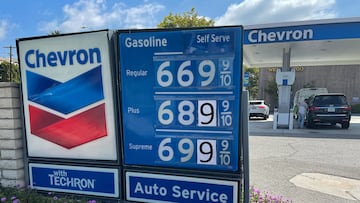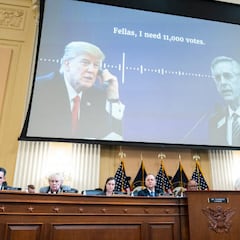US gas tax holiday: When does it start, how much will I save, how long will pause last?
President Biden is calling on Congress and state governments to suspend gas taxes to help Americans struggling with sky-high prices at the pump.

President Biden urged Congress to take legislative action to lower the price of gasoline and diesel by suspending the federal gas tax for three months. Additionally, he has asked that states, that haven’t already, to take actions that can give relief to Americans burdened by record high fuel prices by dropping state gas taxes or other measures.
Should it get through Congress and states follow suit, it could give drivers some instant relief at the pump beyond the national average coming down slightly after topping $5 dollars per gallon last week. However, economists warn that the move could be counterproductive.
Also see:
How much will drivers save from a gas tax holiday?
Currently, the federal government charges an 18-cent tax per gallon of gasoline and a 24-cent tax per gallon of diesel. States charge their own sales tax on fuel which if suspended would give drivers even more savings. For example, New York recently announced that it would pause its motor fuel business tax which could mean up to 16 cents less per gallon drivers pay through the end of the year.
But by the government stopping collection of these funds it means that money will need to be redirected from other areas to fill potholes. The federal and state gas taxes go toward paying for highway construction and repairs. In the White House announcement Biden believes that other revenues can cover the roughly $10 billion the move will deny the Highway Trust Fund while it lasts until September.
NEW: President Biden is calling on Congress to suspend the national gas tax for three months. And he is calling on states to take similar actions.
— Abdullah Hasan (@AHasan46) June 22, 2022
If oil companies and retailers step up too, Americans could save up to $1 or more per gallon on gas. https://t.co/UGBUXgYnsg
Gas tax holiday might not lower prices
Unfortunately, there is no guarantee that dropping the fuel tax will result in lower prices for drivers. Biden is calling on oil and gas producers to pass the savings on to drivers while at the same time produce more. White House officials say that the combination of federal and state tax holidays, along with the cooperation of the oil and gas companies could result in shaving a dollar per gallon of the price of gas.
But other factors out of the president’s and lawmakers’ control could send the price higher. Economists warn that by lowering the price of motor fuel drivers may take to the road more which would drive up demand when there is still a supply issue.
Related stories
The increased demand for the limited supply would send prices up. Another worry is that by having more money in their pockets, consumers will spend that extra cash on other goods which could drive inflation.
The Federal Reserve has been working hard to tackle rising prices by raising rates, any inflationary pressure caused by lower gas prices could result in even more aggressive hikes. The most recent jump of three-quarters of a percentage point was the biggest since 1994 and sent markets into turmoil on fears of a recession.


